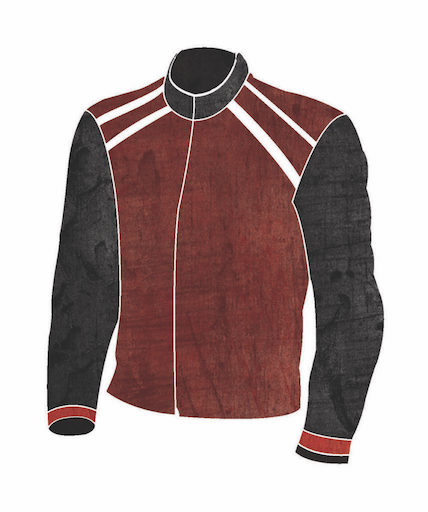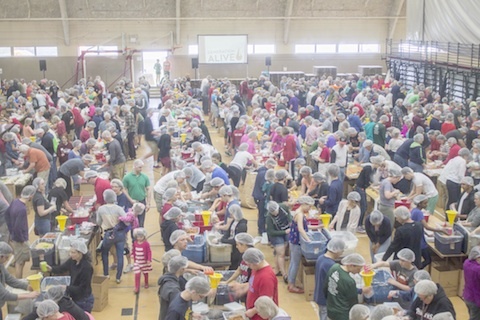The Associated Students of Whitworth University voted in approval of a 1 million meals event to take place the first week of May. Volunteers in the Whitworth community, in cooperation with the advocacy organization Generation Alive and volunteers in the Spokane community, will hand-pack 1 million meals in one day for those in need.
“It seems like Whitworth has a humanitarian mindset when it comes to fighting injustice,” said Jeremy Affeldt, founder of Generation Alive and pitcher for the San Francisco Giants.
A total of $250,000 is needed to pay for the raw ingredients and transportation of the meals. In May, students will gather to assemble the meals.
“Something that I think is pretty key is, yes, $250,000 is a lot of money, but we’re not just asking students to pay the bill,” ASWU President Ian Robins said. “We want to branch out and make sure everyone across the Spokane area knows about this and see how they can get involved, how they can make donations if they want to.”
Meals, made of soy, rice, dried vegetables and vitamins, will be put together in production lines, said Darrin Duty, Generation Alive executive director. Each meal serves six people, he said.
To meet the 1 million meal goal, volunteers must staff 80-100 production lines, each with 12 people. At this capacity, each line could potentially produce 1,500 meals in an hour.
“We’re going to need a lot of manpower,” Robins said.
To pack one million meals, 800-1000 people need to be packing at all times for about ten hours.
Generation Alive coordinates several meal packing events each year, although no single event has achieved the 1 million meal mark.
“I went to serve with my youth group,” freshman Ashley Ayala said. “And it was really cool that we got to actually hold the service materials. Simply giving money can be impersonal, but we gave up part of our time to serve.”
Part of the $250,000 will go toward the rental of four semitrucks to transport the meals. Whitworth as a community will ultimately determine the recipients of the meals, but they will likely be distributed throughout eastern Washington, Oregon, Montana and Idaho, Duty said.
The meals will have a direct impact on Spokane, Robins said. Ninety-thousand people in Spokane County are food-insecure, not knowing where their next meal is coming from, Duty said.
“Whitworth has the opportunity here to make a mark,” Affeldt said. “A million meals— that’s not a small feat.”
Affeldt founded Generation Alive in 2005, because he did not want to give off a selfish impression, as he feels many athletes do, he said.
“I wanted to come up with an organization that understood that outside the baseball field, outside the stadium, outside the nice hotel, there’s a world that I’m living in that goes on,” he said.
Affeldt said that by founding Generation Alive and helping others, he is trying to live by the motto that he raises his sons under: “Don’t live to live for yourself.”
Generation Alive focuses on four major world issues, and especially works to provide awareness and help for victims of hunger and human-trafficking, Affeldt said.
“Hunger is literally the most curable problem that we have,” Duty said.
Sixteen-thousand children die every day due to hunger-related issues, 5,000 of which are under the age of five.
“One goal of Generation Alive is providing students tangible opportunities to engage in acts of service,” said Duty.
To reach the packing day, the Whitworth community first needs to raise the money. Approximately 93 percent of the $250,000 will be used to buy the food, including locally-grown rice. The rest will pay for shipping supplies, boxes, and covering other handling costs.
The goal of packing 1 million meals is still in the early planning stages, although a variety of potential fundraisers to raise the money are being investigated, including coin drives, dorm competitions and donation jars, Robins said.
The Student Athletic Advisory Committee held a coin drive last year for Generation Alive, raising $700 in donations, an amount that was matched by Generation Alive. The SAAC plans to continue fundraising. Student-athletes can help by taking on pledges from donors, who will pledge a certain amount for every sporting success, senior Jill Pecka said.
“Sports can be bigger than just your advancement or your team’s advancement,” Duty said.
Robins said that ASWU is planning on reaching out to nearby universities and other organizations to see if others are interested in participating.
Contact Katie Shaw at kshaw17@my.whitworth.edu









 Spokane?
Spokane?